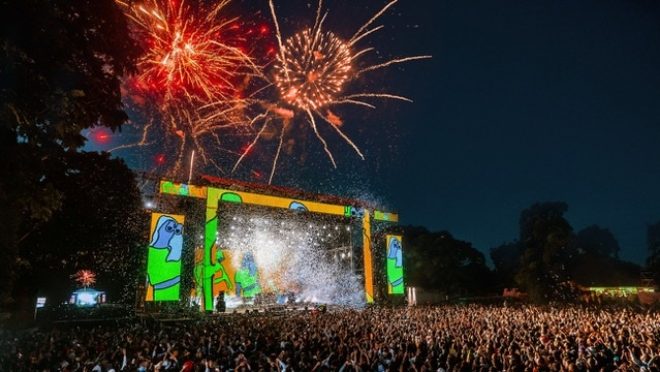Why the adoption of NFT Ticketing is inevitable for Music Festivals

As technology continues to reshape industries, it is no surprise that the music industry is also embracing innovative advancements. One such development that has caught the attention of both artists and fans alike is the rise of Non-Fungible Tokens (NFTs). NFTs have already made waves in the art world, revolutionising the way we think about digital ownership and authenticity. Now, it's time for the music industry to step into the spotlight and explore the potential of NFT ticketing.
Traditionally, concert tickets have been physical or digital representations of access to a live event. However, with the advent of blockchain technology and NFTs, the concept of a ticket is undergoing a transformative shift. NFT ticketing offers numerous benefits that can enhance the concert experience for both artists and fans, making its widespread adoption inevitable.
One of the primary advantages of NFT ticketing is the potential for enhanced fan engagement. By utilising blockchain technology, artists can mint unique NFT tickets that represent exclusive access to specific events. These digital collectibles allow fans to showcase their attendance and participation in a memorable and personalised way. With the ability to attach special perks, such as backstage passes, meet-and-greets, or even exclusive merchandise, NFT tickets create a sense of exclusivity and reward for dedicated fans. Moreover, NFT ticketing holds great promise for combating ticket fraud and scalping. A prime example of this technology being implemented at a festival is NFT-Tix, who recently announced a multi-year collaboration deal with EXIT Festival. They enabled EXIT, one of Europe’s largest festivals, to realise the technologies potential, with them being the first large-scale festival to utilise the technology, alongside Coachella. Emil Ljesnjanin, founder of NFT-TiX explains “This technology provides security for both buyers and sellers, offering peace of mind and transparency in ticket transactions for ticket holders”

Counterfeit tickets have long plagued the music industry, leading to frustrated fans and financial losses for artists. By leveraging blockchain's transparent and immutable nature, NFT ticketing ensures that each ticket is verifiable, eliminating the risk of fraud. Additionally, the resale of NFT tickets can be regulated, preventing scalpers from manipulating prices and profiting unfairly. This ensures that genuine fans have a better chance of securing tickets at fair prices.
Furthermore, NFT ticketing opens up new revenue streams for artists and event organisers. The nature of NFTs allows for the creation of limited edition or special edition tickets, which can be sold at higher prices, generating additional income. Artists can also benefit from ongoing royalties each time their NFT tickets are resold on secondary markets, creating a sustainable revenue model. These financial incentives can help support the music industry ecosystem, enabling artists to invest in their craft and deliver even more memorable experiences to their fans.
Critics may argue that the adoption of NFT ticketing may alienate certain fans who are not technologically inclined or lack access to the required digital infrastructure. However, as technology becomes increasingly pervasive, the majority of concertgoers are already equipped with smartphones and are accustomed to digital experiences. In addition, it is crucial for the music industry to embrace innovation and adapt to changing consumer preferences. By providing comprehensive support and education, the transition to NFT ticketing can be made smoother and inclusive for all fans.
In conclusion, the music industry stands on the cusp of a revolutionary change with the emergence of NFT ticketing.
The adoption of NFTs as a means of ticketing is inevitable, given the vast benefits it offers. Enhanced fan engagement, improved security against fraud and scalping, and new revenue opportunities are just a few reasons why NFT ticketing will shape the future of live events. By leveraging technology to its fullest potential, the music industry can create immersive and memorable experiences that will captivate fans and propel the industry forward into a new era of innovation.
As the chorus of change continues to play, it is up to artists, event organisers, and music industry stakeholders to embrace this new wave and unlock the untapped potential of NFT ticketing.


